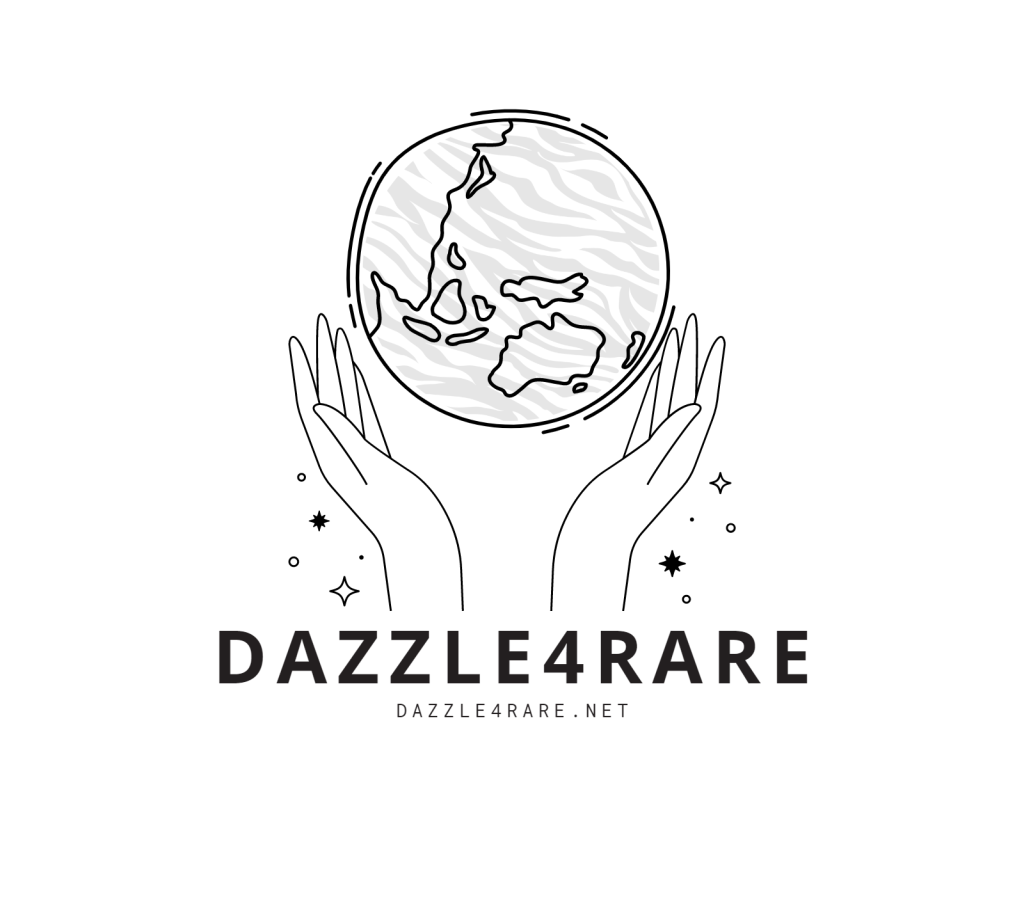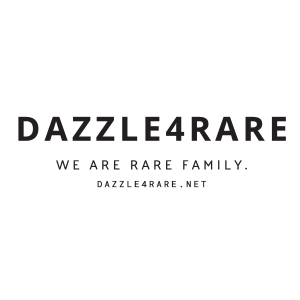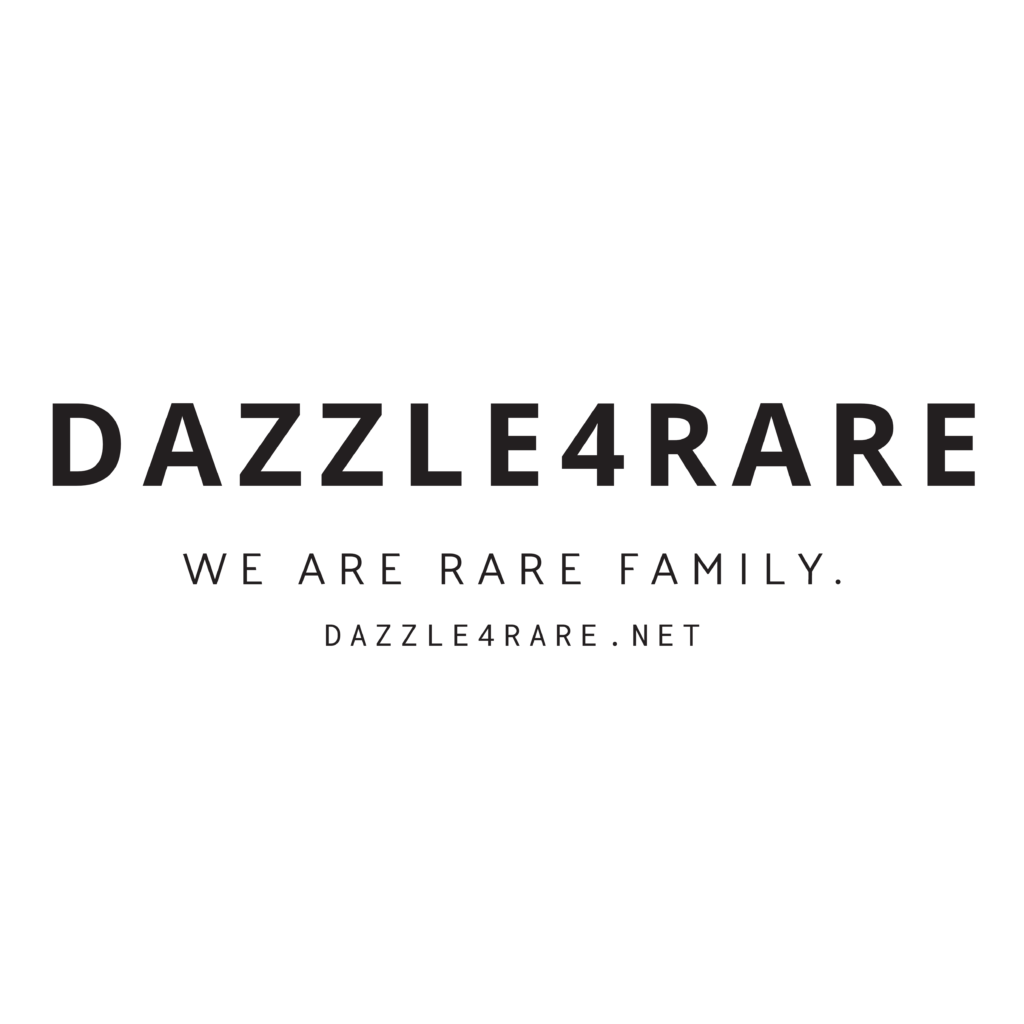Kimberly
Hi, I’m your host, Kimberly Thomas-Tague and you’re listening to Signalise Dazzle4Rare podcast. Whether you’re a patient advocate, caregiver, or clinician, Signalise is your source for good news, personal stories, events, and the things that rare and associated communities care about. Follow Signalise and Dazzle4RAre at D A Z Z L E the number 4 R A R E on Facebook, Instagram, and Twitter where we’ll post episode links, updates, and more.
Welcome to Signalise, a Dazzle4Rare podcast. If this is your first or your 5th episode of Signalise, thanks for taking the time. You could have been doing anything right now, but for the next few minutes, you’re here. And I appreciate that.
Waiting through all the emails, alerts, invitations, and notifications from various organisations like Global Genes Beacon, Genetic Alliance, and others can be a struggle. And let’s not forget you and your events and your community and everything that you have going on. It’s a lot to take in. I’m introducing “Rare and Relevant.” Your TL;DR for all things rare, associated, and noteworthy. But before we get into it, let’s hear from Team Dazzle member Kerry.
Kerry Wong
Hi everyone. Thanks so much for tuning in. I’m Carrie Wong, a writer, and patient advocate. For New York. City you may have seen me. Or my Float like a Buttahfly pages only. But in case you haven’t, here’s a quick intro. My main diagnosis is a rare disease called sarcoidosis, which is why I’m excited to talk to you. Now, April is recognised as Sarcoidosis Awareness Month, and depending on where in the world you are, sarcoidosis Awareness Day is observed on April 13th or April 30th. We need all the awareness. You can get it, so I’m happy to claim all of those dates. So here’s a little info about sarcoidosis. It’s an inflammatory disease that can affect people of any age, gender, or ethnicity though it seems to impact African American women more frequently and more severely than any other demographic. It can affect any organ in the body and that includes systemic symptoms as well, but most frequently it affects the lungs, eyes, and skin.
What happens is the immune system forms clusters of cells called granulomas, which can interfere with any organs functioning they don’t fully understand what causes Sarcoidosis, or why it develops. Differently in different people. It seems to be a combination of genetic predisposition and an environmental trigger. Because of that combination, there’s a much higher incidence of Sarcoidosis right here in New York City. It’s one of the leading health conditions found in 9/11 first responders and people who lived or worked around Ground Zero.
Sarcoidosis is called a snowflake disease because each person’s experience is unique. At the same time, our experience shares so much with other rare diseases. It can take years to get diagnosed, and it can be incredibly isolating when no one else we know seems to understand. That’s why it’s so important for all of us to raise our voices, to share our stories. That’s how we find connections. It’s how we develop a new rare family, and it’s how we know that we are not alone.
To that end I’m actually working on a book; a collection of rare disease stories told by people who are living with them. And I would love to include some of your stories in it. It’s called a Kaleidoscope for two reasons: One, a group of butterflies is called a Kaleidoscope. So if you float like a butterfly with me, that’s just what we are. And two, a Kaleidoscope starts with one thing, and through light and reflection just becomes more enmeshed and more beautiful. And that’s like us each a beautiful butterfly on our own but when we come together, we really dazzle.
See what I did there we Dazzle4Rare.
If you’d like to share your story or learn more about the project you can visit Bitly / Kaleidoscope Rare or at Kaleidoscope Rare on social media. You can also find me at Bitly Float like a Buttahfly or Float like a Buttajfly column or at Buttahfly K on all the socials.
One quick spelling note: like I said, I’m from New York so I spell it how we say it. That’s BUTTAH fly.
So thanks so much for listening and a big thanks to Kimberly for lifting all of our voices here and through Dazzle4Rare
Kimberly
Thanks to Kerry for getting us started with a little bit more information about Sarcoidosis as well as her upcoming project. As Kerry just stated, April is Sarcoidosis Awareness Month and the Caring Hand Sarcoidosis organisation is encouraging individuals to share their stories with the world by sending their pictures, names, and narratives to Sarcoid Network, numeral one, (that’s number one) at Gmail dot com. Or sharing on social media with the hashtag #makeitvisible.
You might know Daniel Defabio. Or you may recall that he joined us on episode 10 of the podcast.
Daniel DeFabio
I started with Bo Bigelow, another rare disease dad disorder, the rare disease Film Festival gathering in a movie theatre with people that might be the most vulnerable people didn’t seem like a good idea anymore, so we created. A streaming channel that you can add to your Roku or Fire TV devices is called the disorder channel.
Kimberly
Daniel has shared that the unofficial series rare days is now streaming for free exclusively on the Disorder channel. Here’s a brief clip of life after diagnosis day. It is the second in a series. The first is “bad days, good days, rare days.”
TDC
It was a pretty dramatic turn for me to realise that she had a very serious condition and that it wasn’t just time that was going to kind. Of work things out.
Kimberly
The Disorder Channel is available on Roku and Fire TV devices. I have a little trouble finding it myself on Fire TV, but it is there if you catch this or any of the other programmes on TDC but Daniel or Bo know that you heard it here on Signalise, a Dazzle4Rare podcast.
So sit back, relax, grab a cuppa, and get ready for your concentrated dose of TL;DR with “Rare and Relevant.”
This is Esophageal cancer awareness month all of April. Esophageal cancer is a type of cancer that affects the esophagus, the tube that carries food from the throat to the. Stomach, according to NHS and form esophageal cancer doesn’t have any symptoms at first. But as the cancer grows it can cause swelling problems or other symptoms.
This is also a Fabry disease awareness month. This genetic condition affects the body’s ability to break down a specific type of. Leading to the accumulation of fat in the body cells. This results in various, symptoms such as pain, kidney problems, and heart disease.
On April 28th, we observe KIF1 a day. This day is dedicated to raising awareness of KIF1A-related disorders. A group of rare genetic conditions that affect the nervous system. KIF1 a day aims to increase awareness, improve diagnosis and treatment and ultimately find a cure for these disorders. According to kif1a.org, “Every year on the 28th of April we honour our superheroes battling KIF1A associated neurological. Order the 28th also happens to be recognised around the world as superhero day.”
Also on the 28th, we have Undiagnosed Children’s Day. This day is dedicated to raising awareness of the challenges that families of undiagnosed children face. It highlights the importance of early detection, diagnosis, and treatment for children with rare diseases, ensuring that they get the care and support that they need. And in many cases, this is life-saving care and support. Moving on to some Facebook events, if you’re on Facebook, here are some events that are coming up. All the relevant links will be in the show notes. If you’re interested in any of these events, if you or a loved one is affected by hydrocephalus, the hydrocephalus association is having its first breaking barriers. Men’s Talk this event is hosted on Facebook. As you know, we love to see a good men’s group online. Wedding support. So we are always happy to share these events when we find them. Also from Hydrocephalus Foundation, on May 10th we have “Bench to Bedside: How does a drug treatment get made?” It sounds like a fascinating webinar. You can read more information on the event page, which again will be in the show notes and hopefully, it will have. The correct date. It’s at 7:00 PM Eastern Time in the US on the 27th.
We have United Leukodystrophy Foundation event, a caregiver online support group. This session also has a Zoom registration link.
If you or your organisation advocacy group, practise, or other rare and associated condition-focused entity of whatever sort have an event of interest to our communities to share, make sure you get it listed on the Dazzle4Rare community events calendar. You can find it on our website dazzle4rare.net or you can reach out to me for more details on how to access it. It is available on your desktop, on your laptop, on your phone, wherever you are, and have a Wi-Fi connection.
Now we have some news bits and bobs from the US and EU.
The Disability Badge Ban and Dame Judi Dench
Interesting.
Dame Judy Dench has opposed a ban on blue disability badges in the York City centre that was introduced by the York City Council in November of 2021. This was to allow the installation of “anti-terror bollards” or posts. In the city centre, the ban prohibits blue badge holders or those who have blue disability badges on their vehicles or inside their windshields, from parking and pedestrian areas within the city’s central footsteps.
A study by postgraduate students from York Law School concluded that the ban is discriminatory toward people with disabilities and gives insufficient weight to their rights. The study interviewed disability rights academics counterterrorist specialists and former police chiefs about the policy and claim that the Council’s actions depicted disabled people or people with disabilities as a hindrance. The Council rejected the report’s findings, but the campaign group Reverse the Ban, which received support from Dame Judy Dench, is calling on the Council to overturn these restrictions.
CRISPR therapy cured a woman’s genetic disease
Thirty-seven year-old Victoria Grey has become the first patient to be treated with CRISPR gene editing for sickle cell anaemia. Sickle cell anaemia is a blood disorder that, at the least, causes excruciating pain and crisis situations and at worst can result in death. And there’s quite a lot in between the in July of 2019, Grey received a new therapy involving CRISPR’s molecular scissors to cut her genome at the position. Of the BCL 11A gene which switches off foetal haemoglobin production after birth. Well, that’s a mouthful. The cells are then repaired where they were caught rejoining their ends, but the gene has been disabled at this point. Doctors then transfused Grey with her own edited cells after killing all the disease blood cells in her bone marrow with chemotherapy.
Grey now feels like she has a new life ahead of her and described her new cells as the closest thing to a cure that has been since the disease was discovered 113 years ago. The new therapy will cost around three million U.S. dollars and is expected to be approved by the US later this year and in Europe sometime later. However, it is unlikely that this therapy will reach many patients in developing countries, particularly those that do not have universal healthcare, healthcare, equity, and healthcare access in developed and developing countries.
This is very much an ongoing conversation, so stay tuned. We look forward to talking more about that in the future.
Mum Misdiagnsed has End-Stage Uterine Cancer
The next story is a particularly upsetting one and touches on the topic of misdiagnosis.
A mother was diagnosed with end-stage terminal uterine cancer and she is encouraging women to persist and advocate with medical professionals if they suspect an ongoing health issue. Kelly Pendry from the UK experienced strange. Symptoms for several years before her diagnosis. These included heavy periods, severe pain, weight gain without explanation, and a swollen tummy. After describing her symptoms to a doctor, she was advised to consider going on the contraceptive pill or getting an IUD known as an intrauterine device and was prescribed antidepressants. Kelly said her initial diagnosis of benign fibroids was not until November 2020, and her condition had reached a terminal stage. A year later, following a lung biopsy, although Kelly would like to have a hysterectomy, the option is no longer available to her on the NHS. She is receiving chemotherapy at the time of recording.
Her husband is hoping to raise £50,000 to pay for her to have surgery in the United States, Kelly hopes that her story will help others, saying that she felt like a drama queen and was overthinking and that it was all in her head. She hopes that women will be encouraged to demand to be heard if they suspect a health issue while Kelly is realistic about the future, she wants her children to know that. He has tried everything possible.
Truly, this is a heartbreaking story and while we do strive to share uplifting stories and great news there, there are often sad stories in our community. And I’m sad to have to share that with you, but it is important to talk about now for something completely different.
I do have some good news for folks who play video games, whether they are on the PC or on a video game platform.
New Inclusive Patch Update to The Sims 4
The Sims 4 has released a recent patch update to their base game that adds more inclusive character customization options. Such as medical wearables like hearing aids and glucose monitors. The update marks a big step forward for inclusivity in the game and has been met with enthusiasm from folks in disabled communities. These new assets are purely aesthetic and don’t affect gameplay.
I personally play The Sims, as does my husband and my son, and I was deeply moved when I opened my game and saw these for the first. I didn’t expect to feel emotional about it, even though I don’t personally wear a glucose monitor or a hearing aid I have worn and do wear medical devices to monitor my health and my vital signs. It’s a good thing to see folks in our communities having a sense of validation and this visual representation in the game for those who do. Use these devices. Medical aids often are an important part of our identity and of our lives, and being able to create a character that reflects your own experience is a powerful thing for players who want to create their Sim-self in the game. This is a nice piece of storytelling, and it adds some authenticity.
Quick disclaimer if you’re struggling currently and talking about mental health. Is not where you are right now. Please come back to this part of the podcast at a later date for those who are staying with me, I’m not a trained mental health professional.
If you’re struggling, you’re not alone. Not by a long shot. And I mean that in the most reassuring way possible. And it’s. Not abnormal or strange to have difficulty naming the emotions or the things that you’re struggling with. I’ll drop the numbers of some different services in. The show notes. While it’s always relevant to talk about how we’re doing mentally, I’ve realised recently when I talked to other advocates in the rare and associated spaces. I’m hearing more people say regardless of where they are in the health spectrum, that they’re feeling tired, they’re feeling. Physically exhausted, mentally exhausted, distracted. Overwhelmed, they’re struggling to keep on top of their inbox. They are struggling to make it to meetings and webinars, and people are just having a really tough time right now. You sort of have to sit down and think.
So what happens when we sit down and ask ourselves, like, are we OK? That’s a good question.
I have some things that I’m trying to work on right now. And I’ll share those with you and maybe these help you as well as advocates and caregivers and humans, we are a very diverse group of people. So we may experience connections to our emotions differently than some of the people who are around us. It can be hard to label the feeling that you’re feeling, especially for those who are neurodiverse among us, or those who are dealing with challenges, caring for someone rare or chronically ill, and in our home we struggle with naming emotions, personally, in my home, we struggle with this and it can be difficult to name what we’re feeling and to explain that to other people.
So you’re not alone if you find naming your emotions difficult. Instead of trying to put a name to what you’re feeling right now, maybe a moment of silence to focus on your body and mind could help. Taking a few deep breaths, using a breathing pattern that works for you, whatever emotions or sensations come up, letting them be without judging them, or without trying to banish them. That’s difficult. Again, I struggle with that too. But after trying this, ask yourself how am I really doing?
Am I OK or am I trying to be OK?
This may bring up some unexpected emotions if you’re feeling overwhelmed, try to find a safe way to release that energy. You could cry, or talk to a friend or a pet. I talk to my cats. All the time. Or you go for a walk, which again, I go for a walk with my cat all the time if that’s something that you’re physically able to do if you’re not. There might be other things that work well for you but by taking the time to process these sensations and feelings as they come up, you might be able to start working with the underlying stuff and know where you’re starting in this moment.
Another idea is to seek help if that feels appropriate for you, or if that is something that you feel comfortable doing. So reaching out to a mental health professional to your GP, to a trusted friend or family member in the UK, we have the Samaritans and they’re available on the phone or via e-mail and they’re very helpful.
In the United States, there are various organisations available by telephone or for online support, and there are lots of support groups on Facebook. If you do need that resource or someone to talk to, these can all be very helpful. Being kind to yourself and not judging yourself is. Another great one and it would be great if it were easy to do. I struggle with that as well. Being kind to myself and it’s not always easy. Sometimes you’re trying to disagree with your worst critic, which is yourself. And if you can take breaks during the day or take breaks during activities, physically or mentally, just to check in with yourself. Pacing doesn’t come easy for all of us, but there are online resources, you know, guides, and videos that can help folks in rare and associated communities with things like learning how to do pacing. Self-compassion is another important one to try to treat yourself with the same kindness and understanding as you would a friend or someone in your community. We’re often triaging the wounds and the pain and the problems of others, but we don’t take the time to offer ourselves that same level of care. You can’t pour from an empty jug. Take a moment to refill yourself. Hearing some, you know, maybe hearing me talk about it right now. Is helpful to you. And realising that this is definitely something that people across the spectrum are really struggling with all the notifications, all the difficult things going on, the news emails, Facebook messages, it’s a lot. It’s a lot, but I hope that some of these things can just be like a little reminder like, “Oh, that’s right. You know, I should check in on myself today. I should take a little bit of extra time to give myself compassion. I should take some time to be kind to myself and to give myself the same level of care that I’m willing to give other people selflessly.”
I hope that what I’ve just said has maybe off. Do a little bit of comfort if you do need help, I will drop some information in the show notes for folks that you can reach out to.
Thanks for listening to this week’s episode of Signalise, a Dazzle for our podcast. To stay up to date on the podcast and Dazzle Ferrer, follow us on Facebook, Instagram, and Twitter @D A Z Z L E, the number 4, RARE – R A R E.
And finally, if you liked this episode, share it with a friend and tag us on social media platforms.




